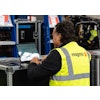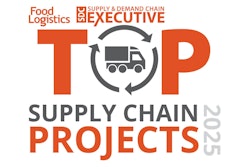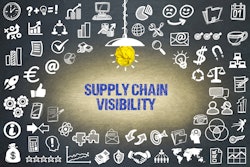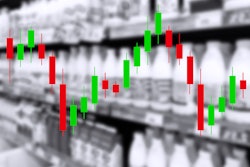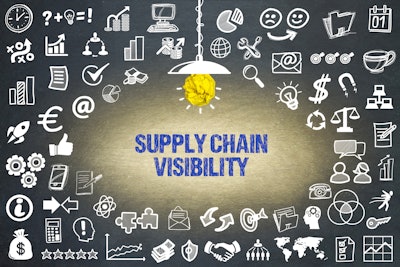
Last summer, a listeria outbreak linked to deli meats led to 10 deaths and 60 hospitalizations in the United States. The contamination was traced back to unsanitary conditions, including mold and mildew, which had been previously reported but not adequately addressed. The outbreak was not just a failure of sanitation—it was a failure of oversight. The incident was a stark reminder of how lapses in supply chain oversight can have catastrophic consequences. Contamination can occur at any level of the supply chain, and every hour lost in identifying the source puts more lives at risk and deepens the damage. Without effective traceability systems down to the Nth tier, companies are forced into a reactive scramble—delaying recalls, endangering consumers, and amplifying financial and legal fallout.
More than ever, companies must take a proactive approach to supply chain transparency. Implementing advanced traceability tools enables businesses to swiftly pinpoint, address issues and mitigate risks before they spiral into full-blown crises. The challenges extend well beyond recalls. Supply chains are more fragile than ever, rocked by geopolitical instability, climate-driven agricultural disruptions, and regulatory crackdowns that demand greater transparency. A single misstep—whether it’s an ingredient linked to deforestation, an undeclared allergen, or a shipment delayed by an unforeseen bottleneck—can trigger health and safety risks, regulatory penalties and lasting reputational damage. In an industry where margins are already razor-thin, these disruptions can erase profits overnight.
As a result, maintaining comprehensive visibility into every step of the supply chain is essential. The ability to track and verify in real time the movement a product’s journey from raw materials to packaging to finished goods ensures compliance, protects brand trust, and strengthens crisis response capabilities. Advanced traceability systems not only help companies meet stringent regulations but also enhance their ability to respond rapidly to potential hazards.
New regulations have further underscored the need for this visibility. The U.S. Food and Drug Administration’s Food Traceability Final Rule, which takes effect in 2026, will mandate enhanced record-keeping for certain high-risk foods to enable faster recalls and limit the public health impact of contamination. In Europe, new deforestation regulations require companies to prove their products aren’t linked to illegal land clearing, adding yet another layer of scrutiny. As regulations evolve, businesses that lack comprehensive traceability will find themselves operating with dangerous blind spots.
Achieving real visibility requires a move away from siloed data and outdated manual tracking methods. Spreadsheets and traditional enterprise resource planning (ERP) systems weren’t designed to provide the level of granularity that modern supply chains demand. Instead, multi-enterprise supply chain platforms have emerged as the new best practice. These platforms connect every tier of the supply chain, creating a digital thread that tracks a product’s journey from origin to shelf. The right multi-enterprise platform can even integrate directly with auditing bodies and compliance databases, providing real-time updates that ensure suppliers are meeting sustainability and ethical sourcing requirements. For food and beverage companies, this level of oversight is particularly critical—delays in identifying issues can make the difference between a minor recall and a nationwide crisis. Because food safety failures directly impact human health, the consequences of insufficient traceability are even more severe.
Artificial intelligence (AI) is accelerating this shift, allowing companies to anticipate risks before they become crises. AI-driven analytics can identify supply chain vulnerabilities, predict demand fluctuations, and optimize sourcing decisions to prevent costly disruptions. For brands managing perishable goods, AI enhances inventory planning, helping prevent waste and ensuring food safety regulations are met without overburdening suppliers. In new product development, AI is helping brands analyze vast datasets to refine ingredient choices, streamline packaging design, and improve demand forecasting. These predictive capabilities give companies an edge in responding to shifting consumer preferences and regulatory pressures—both of which can evolve rapidly. AI is also making compliance more manageable by automatically flagging regulatory risks and ensuring that every product meets the necessary safety and sustainability standards before it ever reaches consumers.
The financial impact of failing to adapt to these new realities is significant. Compliance violations come with hefty fines, and non-compliance with laws like the Uyghur Forced Labor Prevention Act and the EU’s Corporate Sustainability Due Diligence Directive can result in goods being blocked from entire markets, along with hugely damaging reputational consequences. But the biggest cost may be the loss of consumer trust. Shoppers are demanding more transparency than ever, and brands that can’t provide clear, verifiable sourcing information will struggle to compete. Companies that can prove their accountability through comprehensive supply chain documentation will build stronger consumer loyalty and long-term market credibility.
Supply chain failures erode trust and expose companies to preventable crises. Recent global disruptions have made one thing clear: food and beverage companies can no longer afford to operate without full visibility into their supply chains. Whether preventing contamination, navigating complex regulations, or responding to consumer demands, traceability has become critical to modern supply chain management.



